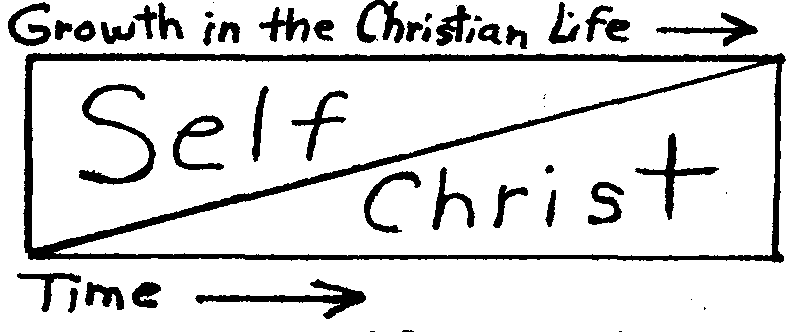"Not I but Christ" Quotes
Norman B. Harrison
“This is the distinctive mark of the Christian—the experience of the cross. Not merely that Christ died for us, but that we died with Him. ‘Knowing this, that our old man is crucified with him’ (Rom. 6:6)” (His Side Versus Our Side, P. 40).
Lewis Sperry Chafer
“The theme under consideration is concerned with the death of Christ as that death is related to the divine judgments of the sin nature in the child of God. The necessity for such judgments and the sublime revelation that these judgments are now fully accomplished for us is unfolded in Romans 6:1-10. This passage is the foundation as well as the key to the possibility of a ‘walk in the Spirit’ ” (He That Is Spiritual, p. 154).
Watchman Nee
“The Blood can wash away my sins, but it cannot wash away my ‘old man.’ It needs the cross to crucify me ... the sinner.... Our sins are dealt with by the Blood, but we ourselves are dealt with by the Cross. The Blood procures our pardon; . . .the Cross procures our deliverance from what we are” (The Normal Christian Life, pp. 31,32).
James R. McConkey
“Because He died ‘death hath no more dominion over Him,’ and because of our union with Him ‘sin shall not have dominion over you,’ even though it is present in you. Our ‘reckoning’ ourselves dead to sin in Jesus Christ does not make it a fact—it is already a fact through our union with Him. Our reckoning it to be true only makes us begin to realize the fact in experience” (The Way of Victory, p. 16).
T. Austin-Sparks
“The first phase of our spiritual experience may be a great and overflowing joy, with a marvelous sense of emancipation. In this phase extravagant things are often said as to total deliverance and final victory. Then there may, and often does, come a phase of which inward conflict is the chief feature. It may be very much of a Romans seven experience. This will lead, under the Lord’s hand, to the fuller knowledge of the meaning of identification with Christ, as in Romans six. Happy is the man who has been instructed in this from the beginning” ( What Is Man? p. 61).
“The highest purpose of God in the salvation of the believer is to bring forth in him the fullest manifestation of Christ in every aspect of his character.” “We have not to die; we are dead. What we have to do is to accept our death... [In] baptism... we simply step in there and say, “That position which God has settled with reference to me is the one which I now accept, and I testify here in this way to the fact that I have accepted God’s position for me, namely, that in the Cross I have been brought to an end.”
“The unalterable basis of an open heaven is a grave, and a crisis at which you come to an end of your own self-life. It is the crisis of real experimental identification with Christ in His death.”
J. Penn-Lewis
“If the difference between ‘Christ dying for us,’ end ‘our dying with Him,’ has not been recognized, acknowledged, and applied, it may safely be affirmed that the self is still the dominating factor in the life” (Memoir, p. 26).
